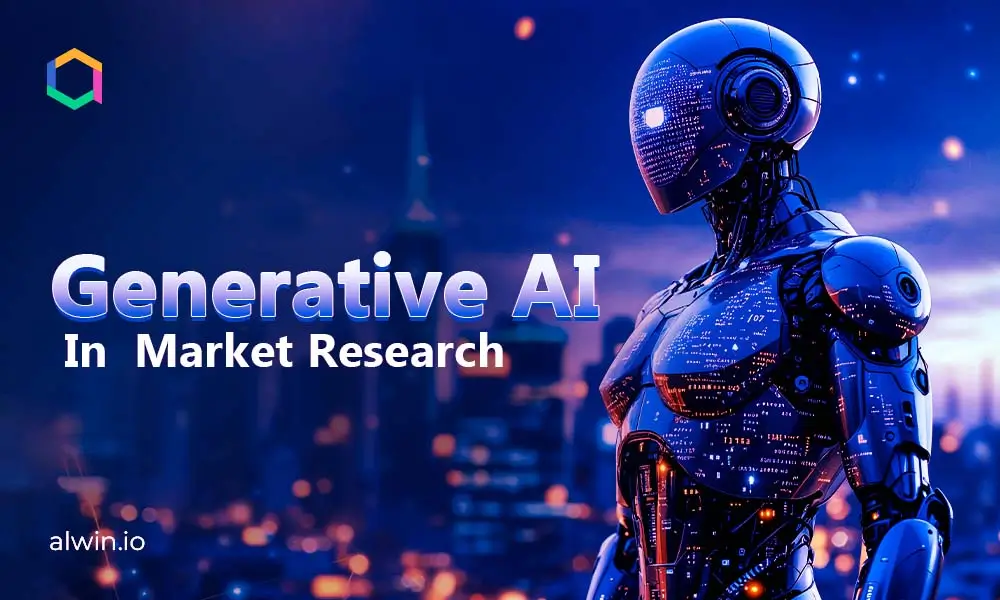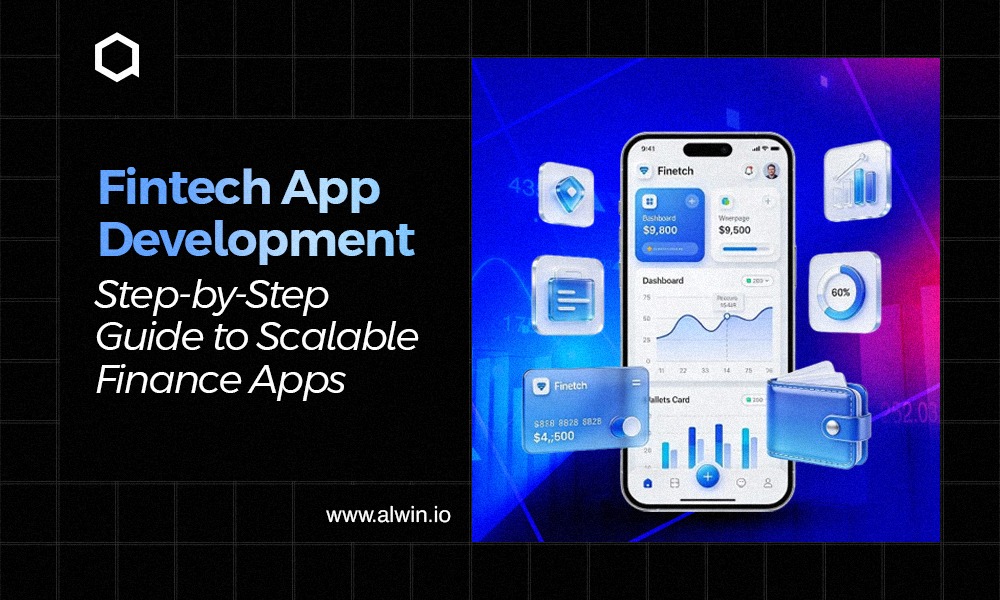What's new? There will be many questions as technological advancements and updates continue to emerge in this era of refinement. While most of these innovations are still in development, they have the potential to become more efficient and powerful, transforming industries and lifestyles.
Artificial intelligence (AI) creates impacts on businesses and markets. One particularly exciting development in the AI field is generative AI technology that goes beyond simple analysis to create new content, such as text, images, data, and even insights. Generative AI has the amazing capacity to produce new, realistic outputs by identifying patterns in existing data, which can assist businesses in making smarter decisions more quickly.
Market research, a vital tool for understanding consumer behavior and shaping business strategies, has traditionally relied on methods like surveys, focus groups, and statistical analysis. While these approaches have served their purpose, they often come with challenges, such as lengthy timelines, limited sample sizes, and sometimes outdated data. The field of market research is evolving due to generative AI, which gives companies additional opportunities to more effectively obtain deeper, more precise insights. Generative AI is changing how businesses obtain a competitive edge in a world that is becoming more and more data-driven, from trend prediction to consumer behavior simulation.
The Role of AI in Market Research
Artificial Intelligence (AI) has fundamentally transformed market research that enables faster, smarter, and more precise decision-making. Traditional market research relied on manual methods like surveys, focus groups, and data crunching, which were often time-intensive and limited in scope. AI has made a huge change in this sector by introducing automation with improved scalability and predictive capabilities that transform how insights are gathered and applied.
AI-powered tools can process massive datasets in real time, uncover hidden patterns, and provide actionable insights. For example, sentiment analysis can measure customer emotions across social media, while predictive analytics forecasts future trends based on historical data. AI also excels in segmentation, helping businesses identify and target specific customer groups more effectively.
Impact of Generative AI on Market Research
Innovative ways are introduced by Generative AI to gather and analyze insights with unprecedented speed and accuracy. It enables the creation of synthetic data to overcome limitations in real-world data availability, providing broader and more diverse inputs for analysis.
Additionally, generative AI improves predictive modeling by simulating consumer and market trends to assist companies in making well-informed judgments. It gives researchers more time to concentrate on key insights by automating tedious operations like sentiment analysis and report preparation.
Furthermore, the relevancy of customer contacts is improved by its capacity to create personalized surveys and content. In addition to effortless procedures, this innovative technology is opening up whole new avenues for data-driven tactics, propelling market research on a more dynamic and progressive path.
Key Components of Generative AI in Market Research
Advanced tools and methodologies improve data collection, analysis, and insight generation in market research by generative AI. Understanding its essential components allows organizations to effectively adapt their potential for more accurate and actionable research. Here are the key elements:
Natural Language Processing (NLP)
Natural Language Processing allows AI to understand, interpret, and generate human language, facilitating smooth analysis of unstructured textual data. NLP powers conversational interfaces for surveys, making interactions more engaging and natural. It also automates sentiment analysis across customer feedback, reviews, and social media, helping researchers identify emotions, opinions, and emerging trends quickly.
Machine Learning Algorithms
Generative AI is enabled by machine learning algorithms to recognize patterns in massive datasets, increase performance over time, and produce precise insights without the need for manual reprogramming. These algorithms identify consumer behavior patterns, predict future trends, and segment audiences with precision, opening the door for highly targeted marketing strategies.
Data Synthesis Techniques
Data synthesis involves creating new datasets that replicate real-world data, essential when existing data is limited or sensitive. Synthetic data generation allows researchers to simulate scenarios, test hypotheses, and model potential outcomes while maintaining privacy and avoiding data scarcity challenges.
Automated Reporting Tools
These tools utilize AI to generate clear, visually appealing reports and summaries from complex datasets automatically. Automated tools reduce the time spent on manual reporting, creating narratives and visualizations that simplify data interpretation for stakeholders, enabling faster and more informed decisions.
Predictive Analytics
Predictive analytics, particularly through the use of generative AI, can significantly improve the ability to forecast future outcomes and market dynamics, including trends in the crypto market. By analyzing historical and real-time data, businesses can anticipate customer needs, detect market shifts, and forecast demand. How Artificial Intelligence (AI) Can Predict Crypto Market Trends exemplifies this application, as AI models can analyze vast amounts of data to identify patterns and make informed predictions about cryptocurrency movements.
User Experience (UX) Design Integration
Incorporating intuitive UX design into AI tools allows users can interact easily with platforms and extract maximum value. Engaging and user-friendly interfaces increase survey response rates, improve data accuracy, and enrich overall interaction with AI-powered research tools, leading to more reliable insights.
Ethical Frameworks and Transparency
Data privacy, bias elimination, and accountability in AI-generated outputs are all made possible by ethical AI methods. In order to build trust with stakeholders and customers, organizations must protect customer data, adhere to privacy regulations, and guarantee that AI-generated insights are objective and morally sound.
Scenario Simulations
Generative AI can create virtual market environments to test strategies, products, and marketing campaigns before implementing them in real-world conditions. By simulating customer responses and market reactions, businesses can refine their offerings, reduce risks, and improve the likelihood of success.
Real-Time Adaptability
Generative AI excels in processing and analyzing data in real-time, offering dynamic insights that evolve with changing conditions. Businesses can monitor market conditions, adapt to shifts, and respond to customer feedback instantly, giving them a competitive edge in fast-paced markets.
Generative AI Applications Across Industries
Generative AI is driving innovation across various industries by automating processes, creating new content, and generating insights. Its versatile capabilities are reshaping workflows, improving creativity, and improving decision-making. Here’s how generative AI is being applied in key industries
Marketing and Advertising
Generative AI is shaking up the marketing landscape by crafting personalized ad campaigns and engaging product descriptions tailored to specific audiences. Simulating consumer responses, allows marketers to optimize strategies before launching, making campaigns more effective. This level of targeting not only boosts customer engagement but also maximizes ROI, helping businesses stand out in a crowded marketplace.
Healthcare
In healthcare, generative AI is a game changer, advancing medical research and improving patient care. It generates synthetic data for privacy-sensitive studies, accelerates drug discovery by simulating molecular structures, and personalizes treatment plans through predictive modeling. These innovations lead to faster breakthroughs, improved diagnostics, and better outcomes for patients, ultimately transforming the healthcare experience.
Entertainment and Media
The entertainment industry applies generative AI to create stunning visual effects, realistic animations, and even music and scripts. It powers recommendation systems that deliver personalized content suggestions based on user preferences. By automating creative processes and improving user experiences, AI is redefining how content is produced and consumed, making entertainment more immersive than ever.
Retail and E-Commerce
Generative AI is reshaping retail and e-commerce by creating personalized shopping experiences. It offers product recommendations based on individual behavior, enables virtual try-ons, and optimizes inventory management through predictive insights. This leads to happier customers, higher conversion rates, and more efficient operations, driving success in the digital marketplace.
Manufacturing
In manufacturing, generative AI delivers innovation by designing advanced prototypes and optimizing production workflows. It simulates manufacturing processes to identify inefficiencies and simplify operations, reducing costs and speeding up production. This capability allows companies to create innovative products with precision, giving them a competitive edge.
Finance and Banking
The financial sector benefits greatly from generative AI, particularly through applications like AI Agents for Fraud Detection. These agents analyze historical and real-time data to predict market trends, flag suspicious activities, and generate detailed financial insights. By utilizing advanced algorithms, AI agents equip fraud detection capabilities, leading to better risk management, improved security, and more informed decision-making across the industry.
Education
Generative AI is transforming education by creating personalized learning materials and automating administrative tasks like grading. It even powers virtual teaching assistants, extending student engagement and making learning more accessible. These advancements reduce the burden on educators, allowing them to focus more on inspiring and teaching their students.
Real Estate
In real estate, generative AI generates compelling property descriptions, simulates architectural designs, and predicts market trends. It helps agents and investors make informed decisions by analyzing market dynamics through visualizing properties in a virtual environment and expediting transactions that lead to better investment outcomes.
Automotive
Designing vehicle components, simulating crash tests, and optimizing routes for autonomous vehicles are effectively handled by generative AI in the automotive industry. These innovations improve safety, reduce development time, and contribute to the creation of smarter, more efficient vehicles.
Energy and Utilities
Generative AI supports the energy sector by forecasting energy demand, optimizing grid operations, and designing solutions for renewable energy. It enables providers to balance supply and demand effectively, reduce operational costs, and promote sustainable practices, paving the way for a cleaner, more efficient energy future.
The Future of Generative AI in Market Research
The future of generative AI in market research is set to transform businesses through various advancements like analyzing data and making decisions. With hyper-personalized insights, companies can create products and campaigns tailored to specific audiences. Real-time data processing will enable instant adaptation to market shifts, while advanced scenario simulations will refine strategies and reduce risks. As Generative AI Development progresses, integrating voice, video, and image data will provide richer, multidimensional insights. Democratized access to AI tools will empower smaller businesses, while ethical innovations will guarantee privacy, transparency, and balanced outcomes. By automating repetitive tasks, generative AI will allow researchers to focus on creativity and strategy, making it an essential tool for smarter, faster, and more reliable market research.
Summing Up
The impact of generative AI on market research is undeniable and it replaces the traditional methodologies with advanced precision, real-time adaptability, and automated processes. Its ability to deliver personalized insights, predict trends, and optimize workflows positions it as a critical tool for modern businesses. Organizations can customize generative AI solutions to meet their unique requirements by engaging with WeAlwin Technologies, a renowned AI Development Company, guaranteeing smooth integration and optimal value. As this technology continues to evolve, it will offer more potent insights, accessible solutions, and ethically sound frameworks, enabling businesses to remain competitive, innovate strategically, and gain a deeper understanding of dynamic market landscapes.



